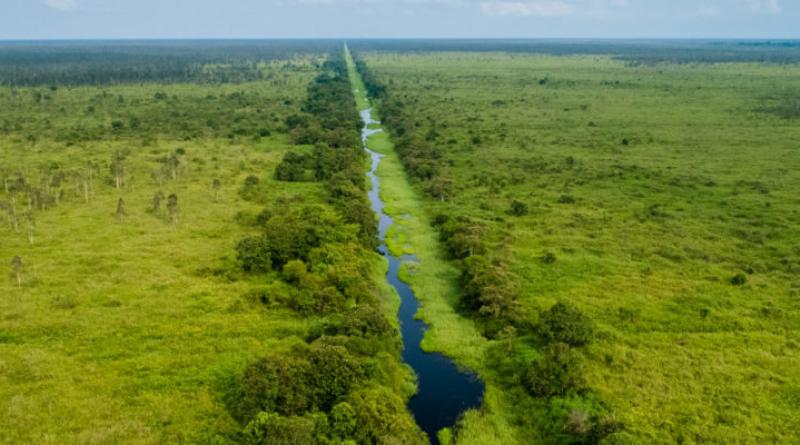Is Capitalism to Blame for Covid-19?

We’re often told that some global challenges are simply too complex for the human mind to understand. This is supposed to explain not only inaction when it comes to the climate crisis, but – as with the increasingly nebulous concept of sovereignty – the allure of neat formulations like ‘take back control’.
Until last week, I thought this also applied to the challenge of Covid-19 – a virus few had heard of until nine months ago but which has so far claimed more than 800,000 lives. Is managing a pandemic, which could remain with us for years, as challenging as climate change from a communications perspective? And if so, how do politicians convey the scale of the problem to the public at large?
When it comes to these questions, I needn’t have worried. The devastation of the effects of the virus on our everyday lives – with millions falling sick, losing loved ones and experiencing economic hardship – have recently been matched by the terrifying realisation that Covid-19 is only the first of many pandemics heading our way.
Coronavirus is an example of ‘zoonotic spillover’, a process whereby a pathogen crosses over from one species to another. The leading candidate for the species which introduced the virus to humankind is bats, with pigs as a possible intermediary. Far from an isolated condition, it is estimated that there are 3,000 different strains of coronavirus amongst 1,200 species of bat. The good news is that only a couple of hundred of these strains are likely to cause us any problems. This is also the bad news.
Zoonotic spillover is directly related to humankind’s dominion over the natural environment. Deforestation means wild species are increasingly liable to come up against the edges of human settlements, and the more land that is given over to things like palm oil and livestock, the higher the chances of a pathogen breaching the species boundary. Again, this problem is particularly acute when it comes to bats, with some projections claiming 99% of south-east Asia’s bat population faces displacement by the middle of this century.
Sickness may be a natural feature of life, but the history of infectious diseases is intimately connected to the history of production and trade. The more our world experiences a compression of time and space, the more likely it is to endure plague and pandemic. This is why the first great contagions in Europe’s history arrived during the Roman and early Byzantine empires, the expansive trade routes and military reach of which brought not only wealth, but vulnerability to disease.
The lesser of these contagions, the Antonine Plague, arrived in the 2nd century AD – likely from the near east – and killed as many as five million people. The Plague of Justinian, which appeared some 400 years later, probably emerged in central Asia before devastating the Mediterranean, the Sassanid Empire, the Arabian Peninsula and even northern Europe. At its peak, some 5,000 people were said to be dying every day in Constantinople.
The Black Death of the 14th century, which killed a third of Europeans, was likely brought to Europe’s shores from across the Black Sea by Genoese Merchants (it’s from the Venetian practice of putting sailors and cargo in isolation for forty days, which emerged some decades later, that we inherit the word ‘quarantine’). Europe’s engagement with the Americas after 1492 was built not only on war and slavery, but also disease. Within decades of Columbus landing on Hispaniola, tens of millions of indigenous people would be dead. Alongside gunpowder and Catholicism, Europeans brought smallpox.
Later, in the early 20th century, the Spanish Flu would kill tens of millions as technologies of transportation and war-making dramatically outpaced medical knowledge and access to effective healthcare. Most of these deaths took place in Europe’s poorest of colonies.
While Covid-19 has claimed fewer lives than any of these outbreaks (partly because it has a lower fatality rate and partly because epidemiological knowledge has improved), what’s most concerning about this particular virus is what it tells us about our future: that capitalism’s relationship to our planet is making such outbreaks increasingly common. Indeed, Covid-19 is the third zoonotic coronavirus strain this century, the first two being SARS in 2002 and the MERS a decade later. There are of course other deadly viruses which have resulted from pathogen spillover in recent years, including Ebola – which has a fatality rate of around 50% – and HIV-Aids, which likely crossed the species boundary during the mid-20th century before claiming more than thirty million lives.
The cause of zoonosis with both Ebola and HIV-Aids is widely considered to be the consumption of ‘bushmeat’. With different strains of coronavirus, however, the cause appears to be animal agriculture, as humans encroach on previously wild habitats and a range of mammalian viruses enter the food chain. While discussions of Chinese ‘wet markets’ often carry racist undertones, it’s undeniable such places offer a haven for zoonotic spillover. Importantly, however, these issues aren’t limited to the Global South, and in the US many are concerned that chronic wasting disease – a degenerative condition that affects elk – might pass the species barrier to humans if an infected animal is eaten (something already observed with monkeys). From the Congo to Colorado, eating wild animals is increasingly irresponsible, and while present modes of factory farming are unsustainable, the problem of pathogen spillover makes eating bushmeat and game akin to playing Russian Roulette at the level of our entire species.
Simply prohibiting such practices is inadequate, of course. For some rural communities in central Africa, bushmeat offers not only a cheap source of food but often an income too. The same applies in China, with the story of the endangered pangolin – the world’s most trafficked animal – demonstrating how the threat of criminalisation means little when economic incentives remain high.
Elsewhere, deforestation – particularly in large economies like Brazil and Indonesia – is integral to countries’ development ambitions, although the cost will inevitably outweigh any perceived benefit. As Rob Wallace writes, opening our planet’s remaining wilderness to global circuits of capital will unleash tremendous epidemiological forces – the heart of darkness striking back against an increasingly ‘unnatural’ modernity. The more we poke and prod, the greater the backlash. Rising temperatures only compound the problem, with events like wildfires creating even greater deforestation and in turn unprecedented interaction between human settlements and large concentrations of wild animals. Andreas Malm puts it well: “One might regard Covid-19 as the first boomerang from the sixth mass extinction to hit humanity in the forehead”.
Given the last 12 months have already seen wildfires kill three billion animals in Australia, record temperatures in the Arctic and extreme heat in California, it’s clear time isn’t on our side. But while climate change has proven difficult to explain as a political issue, Covid-19 could change that. 180,000 deaths in the US, and more than 50,000 in the UK, is not the premise of a bestselling Cli-Fi novel – it’s the six o’clock news. In that context, inaction, and thinking we can continue with business as usual, is tacitly accepting a terrifying loss of life as future contagions occur. How many more pandemics will it take before we realise our economic system is not only undermining the health of our planet, but our health as a species too?
Aaron Bastani is a Novara Media contributing editor and co-founder.
31 August 2020
NOVARA MEDIA



